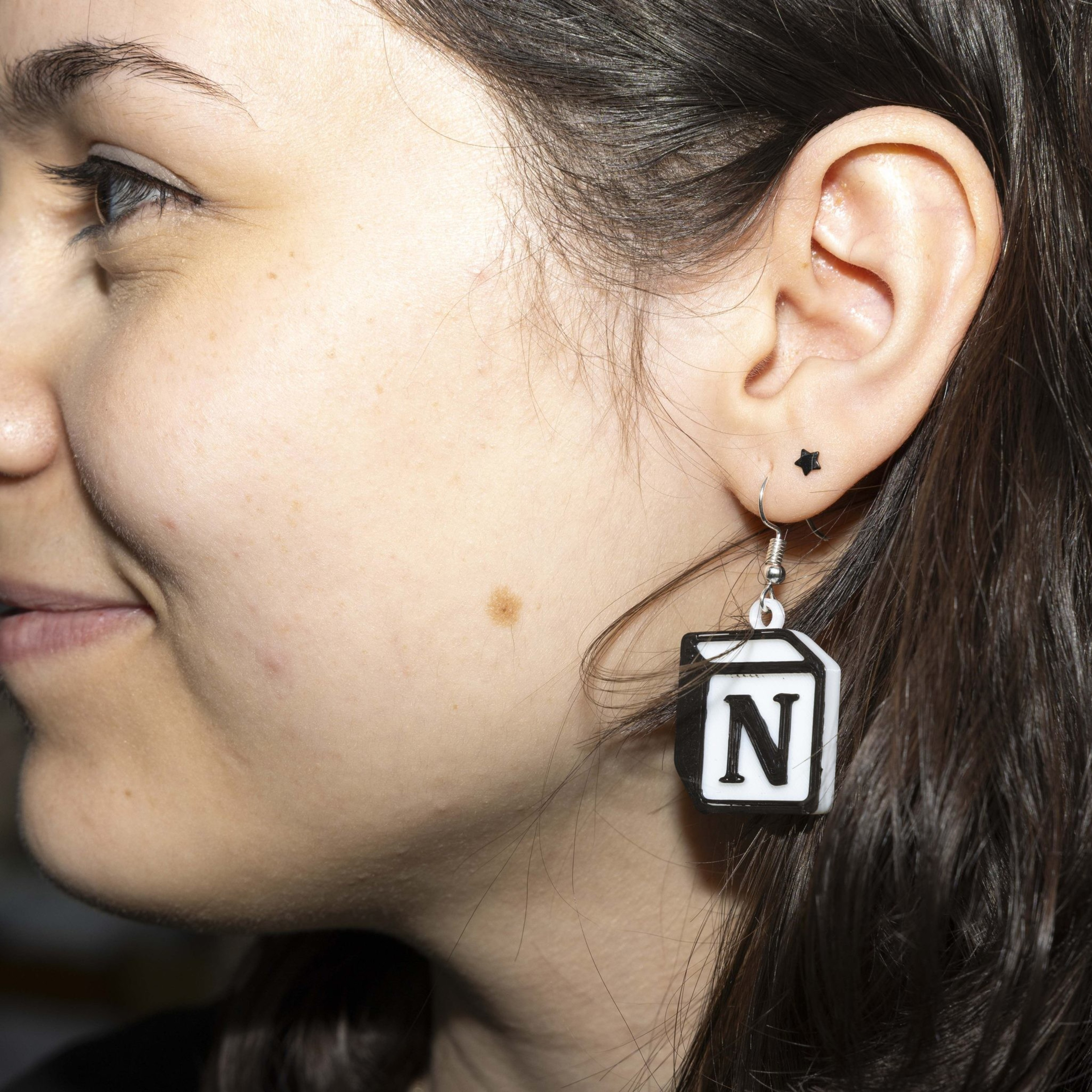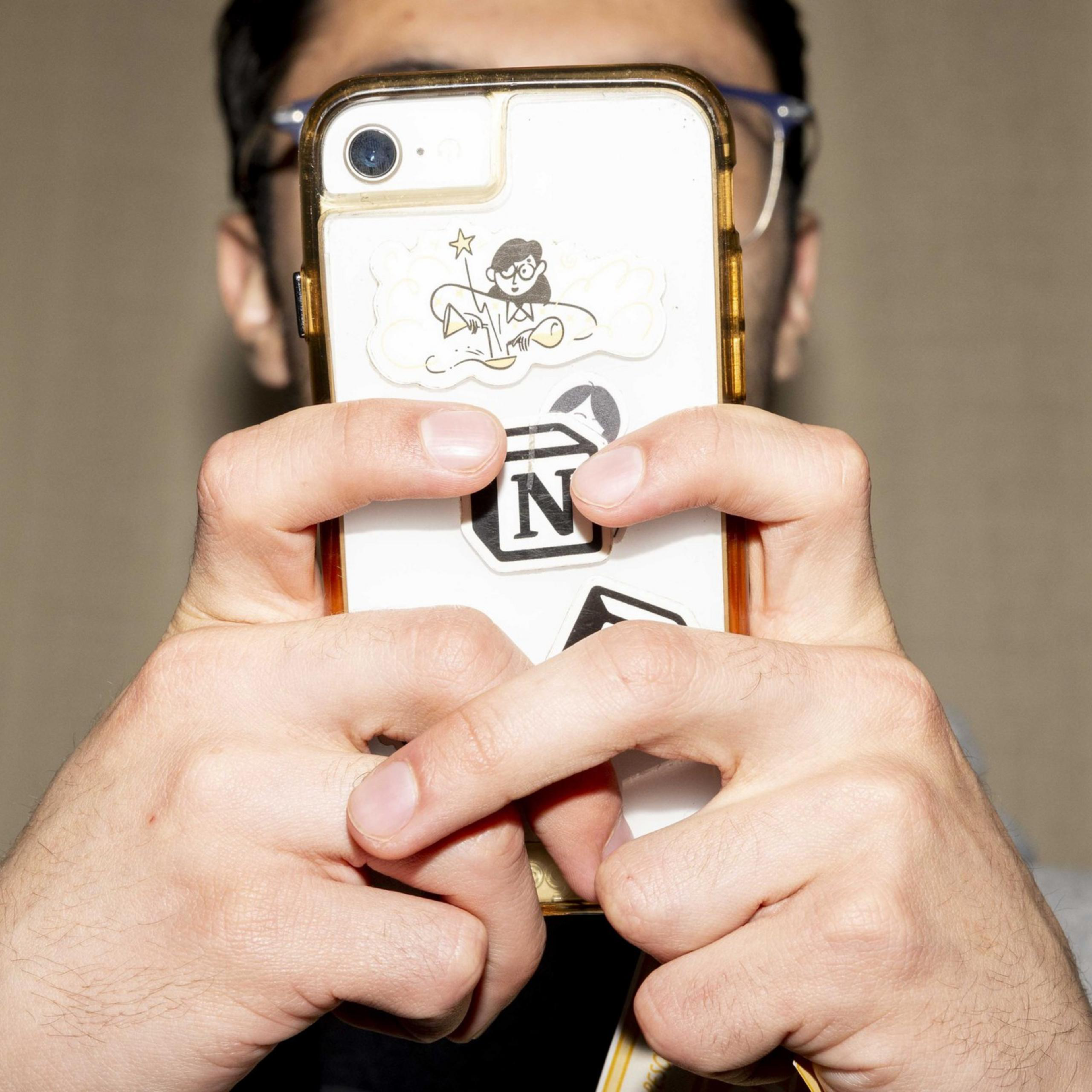Nowadays, the internet-enabled rise of stan culture means there’s a segment of the population hyperobsessed with pretty much any topic you can think of.
But super fandom goes beyond the Real Housewives or overindexed vinyl record collections. Case in point, devotion to a particular piece of productivity software from San Francisco company Notion drew more than a thousand conference attendees to the city on Thursday to swap stories, shortcuts, and spreadsheets.
Call them “Notion Nerds,” they won’t be offended. Marie Poulin, for one, wears the moniker proudly.

She used the software to prepare for her travel from British Columbia to San Francisco for the Make With Notion conference. Every time she packs for a trip, she opens up the app, where she has tracked her entire wardrobe and built collections that can serve as templates for almost any occasion.
“I have photos of everything in my closet,” Poulin said. “When I travel, that’s the kit.”
The Canadian has outsourced a major portion of her life to the software. She uses it as a journal, tracking her daily learnings and feelings, and even has a “badass” gardening dashboard. After she began posting YouTube videos about how she used the software, the company reached out to ask her to run virtual office hours for other users.
She parlayed that “Notion mastery” into a full-time job, running a consulting firm called Oki Doki with her husband since 2019. One segment of her viewers has been particularly validating: those who have been diagnosed with ADHD.
“I saw it in my own diagnosis in 2020,” Poulin said. “I needed something a lot more visual to express my ideas.”

For those not in the know, Notion’s note-taking and project management features are like Google Docs but on steroids — and much more customizable.
A marketplace of more than 20,000 user-generated templates ranges from simple to intricate, offering study planners, product road maps, journals and workout programs. They go beyond the obvious to track pet care and even a “cattle management tracker” for ranchers that can monitor health, productivity, and even reproductive performance.
CEO Ivan Zhao said he recently learned about monks in Thailand who use Notion to track their daily meditations. “If you had told me one day Notion will help monks running a monastery in Thailand, I’d say you’re crazy,” he said.
Sean Young, a hip-hop artist and lyricist with the stage name Mr. Wildenfree, said he catalogs all his music metadata in Notion.
For artists to make money to have their songs on television shows and in films, they must submit a variety of data, and Notion has proven to be his “source of truth.”

“It’s so significantly better than a Google Doc,” he said.
Couples (and even polycules (opens in new tab)) have created templates to optimize their relationships (opens in new tab), creating shared grocery lists, date night logs, breakup protocols, and a guide to shared principles.
Amir Arabkheradmand, a product consultant based in San Francisco, said he used Notion to plan an anniversary date with his wife.
“We both brought things we wanted to do onto one page,” he said. The online brainstorming turned into a full-day tour across the North Bay, with lunch in Sausalito, oysters in Bodega Bay, and then an afternoon stroll in Petaluma.
“Google Docs and Slack messages become a black hole,” he said. “Notion makes it easy to find things.”
Who said romance is dead?
Every new feature announced during Zhao’s keynote garnered enthusiastic cheers, especially when the company revealed users would now have the ability to add *custom* emojis as header icons. 🤪 (opens in new tab)
Notion’s primary audience is knowledge workers, but the company has developed a fervent worldwide community of professional template-makers and design consultants who spread the gospel on how to build beautiful organizers for any need you can imagine.
Mateo Bermúdez, a designer from Bogotá, Colombia, started a Notion advising service and created a game called Notionopoly, modeled after Monopoly, to make it easier for newbies to get the hang of how to customize the software for their needs.
Bermúdez collaborated with a few other Notion-pilled colleagues he met at a meetup to create Notionopoly, which takes about two hours to play and allows users to collect “Notion pesos” by building databases and filters with the software.
“We went through a learning curve” while adopting the software, Bermúdez said. “There’s a lot of things you can do. You see other creators in the community using really complex templates.”
Just like a dad might share his favorite rock band, Notion Nerds are getting their families invested in the software.
Notion co-founder Akshay Kothari uses the tool with his daughter to track her rose, thorn, and bud for the day, corresponding to the best part of her day, the worst, and the hope for tomorrow.



“I probably started her a bit early,” he admits. She’s 7.
“We built a little journal template where you put your rose, bud, and thorn and a picture of the day,” Kothari said. “I hope 10 years from now when she’s an adult, she will look at it.”
For some, Notion works as a secondary brain. Lonnie Ro, a creative director based in Los Angeles, said he tracks anything he wants to remember — movie or restaurant recs, a link to an article — in Notion.
“It empties my mind so I can generate ideas and not have to worry about retaining them,” he said.
Tasks that linger on his to-do list get deleted off his template after six months and purged from his brain.
“I feel in control,” Ro said. “Maybe it appeals to my Virgo sensibilities.”

